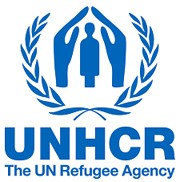- BY Free Movement

UNHCR guidelines on survivors of male rape and sexual violence
THANKS FOR READING
Older content is locked

A great deal of time and effort goes into producing the information on Free Movement, become a member of Free Movement to get unlimited access to all articles, and much, much more
TAKE FREE MOVEMENT FURTHER
By becoming a member of Free Movement, you not only support the hard-work that goes into maintaining the website, but get access to premium features;
- Single login for personal use
- FREE downloads of Free Movement ebooks
- Access to all Free Movement blog content
- Access to all our online training materials
- Access to our busy forums
- Downloadable CPD certificates
 UNHCR has published guidelines on Working with men and boy survivors of sexual and and gender based violence in forced displacement. The document is essential reading for anyone working with such men and boys and it is the first time I can recall seeing this taboo and much misunderstood subject addressed in such a useful and thoughtful way.
UNHCR has published guidelines on Working with men and boy survivors of sexual and and gender based violence in forced displacement. The document is essential reading for anyone working with such men and boys and it is the first time I can recall seeing this taboo and much misunderstood subject addressed in such a useful and thoughtful way.
The guidelines point out that sexual violence and rape can be used as a weapon of war against men as well as women, that it is inflicted on men as a means of disempowerment, dominance and undermining concepts of masculinity, discussed triggers for survival sex and then goes on to set out some indicators for identification of survivors:
Male survivors rarely report SGBV incidents immediately, and frequently do so only when the physical effects of attacks require urgent intervention. Some men and boys dare only to seek assistance several years after the event.
The following behaviours are not always present; however, very frequently male survivors of sexual
violence:▪ Cannot sit comfortably; they will often sit on the edge of a chair or request to stand during an
interview or meeting.
▪ Complain about lower back problems, signalling rectal problems.
▪ Rarely make eye contact.
▪ Show high levels of anger and irritability.
▪ Show high levels of homophobia.
▪ Show a strong gender preference in relation to who interviews them [sometimes male sometimes female].
▪ Repeatedly discuss an apparently unrelated protection concern, even after this has been
effectively addressed.action
▪ Pay attention to these signs and respond to them.
▪ Provide information about urgent medical services, if appropriate, and all other available services,
confidentially and sensitively.
▪ Convey the message that sensitive issues can be addressed confidentially when the survivor
feels ready to talk about them.Be alert to the possibility that sexual violence has occurred against a man if a woman who is
counselled reports that her male partner:
▪ has lost sexual interest and refuses intimacy.
▪ is unable to relate to other persons, even their own children.
▪ has withdrawn from social or community activities and meeting spaces.This behaviour may also be reported by the survivor, other family members, or friends.
The guidance goes on to look at understanding the needs of men and boy survivors, makes suggestions on building trust during interviews and urges us all to examine and challenge our own assumptions and stereotypes about gender, including male (in)vulnerability to sexual and gender based violence and the harm it causes.
SHARE

